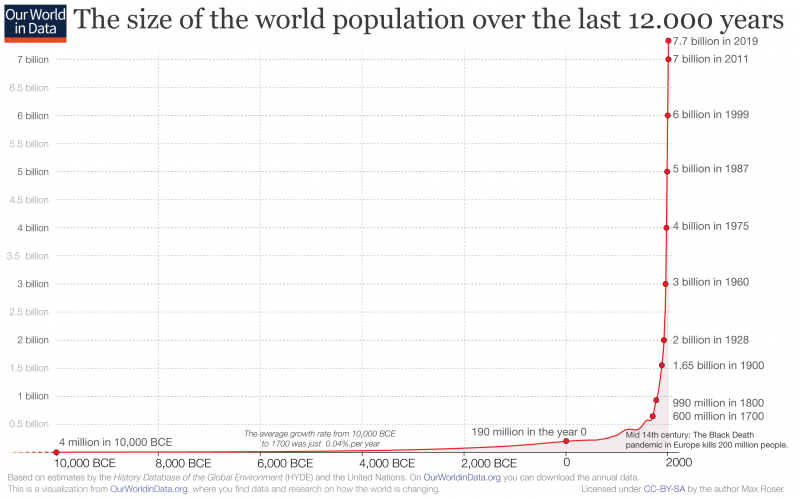ARTICLES
The Most Ethical Gift: Towards a Sustainable Demographic Future
Joe Bish
Confusion as a State of Grace: Climate and Kinship in 2021
Installment 5 ~ Slowwashing: The Fiction of Frictionless
Cara Judea Alhadeff
The Pachamama and the Empire
Margarita Mediavilla
Enough is Enough: It's Time for a Real Green New Deal
Megan K. Seibert & William E. Rees
Through the Eye of a Needle: An Eco-Heterodox Perspective on the Renewable Energy Transition
Megan K. Seibert & William E. Rees
Growth through Contraction: Conceiving an Eco-Economy
William E. Rees
Overpopulation Denial Syndrome
Robin Maynard
Preparing to Welcome Two Billion Refugees
Dave Pollard
From Neoliberal Capitalism to 'Buen Vivir'
Victor Toledo
All of a Sudden: Climate Change Tipping Points Appear with a Vengeance
Kurt Cobb
What the IPCC Report Should Have Told Us
Jody Tishmack
Who Can Save Us From Jeff Bezos and Silicon Valley's Planetary Death Wish?
Lynn Parramore
Revisiting The Limits to Growth
Andrew Curry
The Paradox of Growth ~ The Pursuit of Growth Is the Fastest Road to Decline
Tim Morgan
Billionaire Space Race: The Ultimate Symbol of Capitalism's Flawed Obsession with Growth
Tim Jackson
Technoscepticism and the Machine-proof Muir
Joe Gray
A Lacuna in Christian Animal Ethics ~ Part 1
Walter Scott Stepanenko
IPCC Report: Happily Ever After or Miserable Ever More?
Brian Snyder
From Systems Theory to Social Action for an Ecological Civilization
Phila Back
New Book: Energy and Human Ambitions on a Finite Planet ~ Assessing and Adapting to Planetary Limits
Thomas W. Murphy, Jr.
Will World Population Drop Far Enough, Fast Enough?
Tom Flynn
The Problem of Philosophy
Eliza Daley
Reading the Encyclical Letter Laudato Si' With Gender Lens
Teresa Toldy
Is Pope Francis an Ecofeminist?
Susan Rakoczy

The Most Ethical Gift:
Towards a Sustainable Demographic Future
Joe Bish
This article was originally published in
The Ecological Citizen, Vol 5, No 1, 2021
REPUBLISHED WITH PERMISSION

Source: Our World in Data. Click the graph to enlarge.
The goal of slowing down, stopping and eventually reversing human
population growth is no longer to avert an ecological catastrophe. That
ship has sailed. Activists, funders and non-governmental organizations
focused on population are operating in the midst of overshoot already in
progress. Accepting this reality, and building messaging around it, may help
considerably in optimizing the public face of population advocacy moving
forward.
As of now, population activists should advance an intergenerational narrative
when it comes to explaining the ecological relevancy of human population size
and growth. Population interventions should be framed as ethical imperatives,
and long-term projects to improve the chances of future generations
establishing sustainable living scenarios with the planet. Continuing to frame
population interventions as being able to pay immediate and substantial
demographic dividends at the global scale – or as the indisputable priority
actions for near term mitigation of the greenhouse gas emissions and
biodiversity crises – no longer makes sense.
To be clear, creating the conditions for population growth to stop, and
minimizing total population increases prior to the eventual global peak, are
still the two key population objectives. Once the peak arrives, and population
starts naturally decreasing, there will be new messaging and public relations
challenges for population-aware environmentalists. But this is a long way off.
Even the most optimistic projections do not forecast an end to population
growth until the 2050s or 2060s, and those that do assume heroic ongoing
work to help fertility decrease further. Of course, this inconvenient truth will
not stop anthropocentric economists and politicians from calling for higher
birth rates, and we can expect outright panic from them as fertility decreases
further.
But, for the ecologically informed, admitting that global demographic trends,
in any non-dystopian scenario, cannot be made to turn on a dime is
emotionally difficult. Every moment that passes we see the living Earth suffer
heinously. We want to intervene quickly, strongly and decisively. Yet, in terms
of population, concepts of ‘quickness’ extend to decades. It will likely take at
least 30 or 40 years to end population growth – and the greenhouse gas
emissions and biodiversity crises must be largely resolved long before then.
By ceding a sense of immediacy in our outlook and messaging, population
activists can be fully enriched in our ability to stake out visions of future global
sustainability. Beautiful scenes of an equitable, ecologically-informed
population of two billion, living in harmony with a wild and vibrant Earth, are
appealing to human nature. They speak to the ethics of caring for our
descendants’ wellbeing. They also give us the exact platform we need to double
down on population programs and public education, for the most critical
factors in determining the future population size of humanity are the family
size decisions of today. There are well-understood, affordable and progressive
ways to decrease family size outcomes.
I agree with Oswald Spengler: optimism equals cowardice. There is nothing to
be optimistic about, ecologically speaking. The power of positive thinking, on
the other hand, is different. It is not naivety; in fact, it is predicated on a full
and sober accounting of reality. In terms of the human population size relative
to the Earth’s sustainable capacity to support it, the reality is we are living in a
disaster. This situation is deplorable, tragic, frustrating and outrageous – but
appeals for forward-looking population-related programs, and organizing
sufficient public support for them, need to go beyond condemnations of the
condemnable. Would be supporters also need to form a positive emotional
attachment to the idea of an improved, sustainable demographic future.
The most ethical gift we can give the people and creatures of the late 21st
century and early 22nd century is a chance. In the realm of population, this
means working across the generations to ensure a much smaller, more
ecologically right-sized number of humans.
Citation: Bish J (2021) The most ethical gift: Towards a sustainable demographic future.
The Ecological Citizen Vol 5 No 1 2021: epub-043.